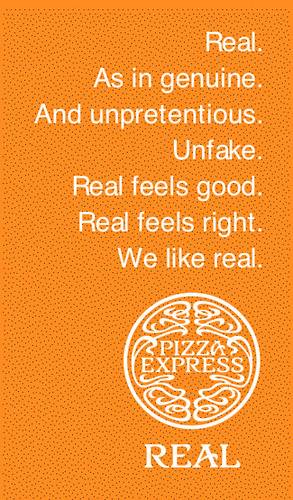The negative wears the trousers

'Real' is what we may call a trouser-word. It is usually thought, and I daresay usually rightly thought, that what one might call the affirmative use of a term is basic - that, to understand 'X', we need to know what it is to be X, or to be an X, and that knowing this apprises us of what it is not to be X, not to be an X.
But with 'real', it is the negative use which wears the trousers. That is, a definite sense attaches to the assertion that something is real, a real such-and-such, only in the light of a specific way in which it might be, or might have been, not real.
'A real duck' differs from the simple 'a duck' only in that it is used to exclude various ways of not being a real duck - but a dummy, a toy, a picture, a decoy, etc. And moreover I don't know just how to take the assertion that it is a real duck unless I know just what, on that particular occasion, the speaker has it in mind to exclude."
JL Austin, Sense and Sensibilia (1962)
|
The above piece of godawful marketing dreck caught my eye the other day and reminded me of the Austin quote for some reason. One point worth adding, however. Back in the old days, advertising slogans were meant to be clever and witty, dreamt up by literary types like Fay Weldon or Salman Rushdie for the delight of the general populace.
Yet it's impossible to think any thought whatsoever has gone into the above. In fact you can picture the process that led up to it - various marketing brand manager types had a 'brainstorming session', and the raw transcript of their brainless jabber is presented as the finished product.
It follows that the relationship between marketeers and marketed-to has changed since the days of Weldon/Rushdie. Rather than thinking of ourselves as consumers, we are being positively encouraged to think of ourselves as marketeers. We are meant to participate in the marketeers' conversation, to agree with it...
posted by
bat020 on Monday, May 21, 2007 —
—
link